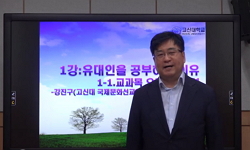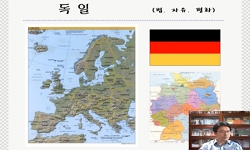Literature of writers of three nations, Czechs, Germans, and Jews, was developed in Prague in the early 20th century. This tradition was stagnated a little bit during the 2nd world war and communist era, but it was activated again in early 1960's and ...
http://chineseinput.net/에서 pinyin(병음)방식으로 중국어를 변환할 수 있습니다.
변환된 중국어를 복사하여 사용하시면 됩니다.
- 中文 을 입력하시려면 zhongwen을 입력하시고 space를누르시면됩니다.
- 北京 을 입력하시려면 beijing을 입력하시고 space를 누르시면 됩니다.
https://www.riss.kr/link?id=A82634788
- 저자
- 발행기관
- 학술지명
- 권호사항
-
발행연도
2011
-
작성언어
-
- 주제어
-
KDC
349
-
자료형태
학술저널
- 발행기관 URL
-
수록면
29-54(26쪽)
-
KCI 피인용횟수
1
- 제공처
-
0
상세조회 -
0
다운로드
부가정보
다국어 초록 (Multilingual Abstract)
Literature of writers of three nations, Czechs, Germans, and Jews, was developed in Prague in the early 20th century. This tradition was stagnated a little bit during the 2nd world war and communist era, but it was activated again in early 1960's and continued its similar tradition. Writings of Jewish Czech authors who wrote in Czech, and Jewish authors such as Franz Kafka, Max Brod and others, who wrote in Prague-German received world recognition. Even if they used different languages while they wrote their works, they had common theme and subject which reflected mentality of Prague life at that time. During this period the German literature of Rilke, Meyrink and others held an unique position in German literary history. In this period Czech writers such as Karel Čapek and Jaroslav Hašek showed similar creative spirit as German writers. This literature, which has been developed in European Catholic culture and Central European cultural tradition, has unique Prague style which can not be found in any other cities.
참고문헌 (Reference)
1 오왕근, "카프카와 프라하" 192-217, 1995
2 김규진, "카렐 차펙의 철학소설 <유성>의 분석" 동유럽발칸연구소 21 : 99-120, 2008
3 김규진, "차펙의 소설『호르두발』에 나타난 주제, 기법과 형식의 문제" 외국문학연구소 (33) : 27-50, 2009
4 김규진, "차펙의 단편집 <두 호주머니 이야기>에 나타난 주제와 모티프 연구" 한국동유럽발칸학회 11 (11): 129-152, 2009
5 쿤데라, "사유하는 존재의 아름다움" 청년사 1994
6 Arie-Haifman, Hana, "Švejk, the homo ludens In Language and Literary Theory" Lubomír Dolezel 1984
7 "članky o Střední Evrope"
8 "www.ucl.cas.cz/edicee/data/antologie/zdejin/3/kosik.pdf"
9 "www.holocaust.cz"
10 "www.brandeis.edu/gsa/gradjournal/2003/pdf/ruzicka.pdf"
1 오왕근, "카프카와 프라하" 192-217, 1995
2 김규진, "카렐 차펙의 철학소설 <유성>의 분석" 동유럽발칸연구소 21 : 99-120, 2008
3 김규진, "차펙의 소설『호르두발』에 나타난 주제, 기법과 형식의 문제" 외국문학연구소 (33) : 27-50, 2009
4 김규진, "차펙의 단편집 <두 호주머니 이야기>에 나타난 주제와 모티프 연구" 한국동유럽발칸학회 11 (11): 129-152, 2009
5 쿤데라, "사유하는 존재의 아름다움" 청년사 1994
6 Arie-Haifman, Hana, "Švejk, the homo ludens In Language and Literary Theory" Lubomír Dolezel 1984
7 "članky o Střední Evrope"
8 "www.ucl.cas.cz/edicee/data/antologie/zdejin/3/kosik.pdf"
9 "www.holocaust.cz"
10 "www.brandeis.edu/gsa/gradjournal/2003/pdf/ruzicka.pdf"
11 "http://www.lutterworth.com/jamesclarke/jc/titles/ninegate.htm"
12 Lustig, Arnošt, "Ulice Ztracenych" Index 1973
13 Kundery, Milan, "The tragedy of Central Europe" New York Review of Books 1984
14 Chalupecký, Jindřich, "The Tragic Comedy of Jaroslav Hašek" in Cross Currents" (23) : 137-153, 1983
15 Dagan, Avigdor, "The Czech-German-Jewish Symbiosis of Prague, The Langer Brothers in Cross Currents, a Year Book of Central European Culture" Yale Univ. Press 181-194, 1991
16 Parrott,C, "The Bad Bohemian" Abacus 1978
17 Rothe, Daria, "Rilke’s Early Contacts with Czech and Jewish Prague In Cross Currents, A Year Book of Central European Culture" 255-262, 1982
18 Demetz, Peter, "Prague in Black and Gold, The History of the City" Penguin Books 1987
19 Galík, Josef, a jini, "Panorama Českě literatury" Rubico 1994
20 Hašek, J, "Osudy Dobrého vojáka Švejka za světové války" Československý spisovatel 1983
21 Kundera, Milan, "Nesmrtelnost" Atlatis 1993
22 Haman a jini, "Litertura v diskusi" H & H 2000
23 Ivan Klíma, "Karel Čapek: Life and Work" Catbird Press 2002
24 Bradbrook, Bohuslava, "Karel Čapek: In Pursuit of Truth Tolerance And Trust" Sussex Academic Press 1998
25 Kosík, Karel, "Hašek and Kafka in Cross Currents" 23 : 127-136, 1983
26 Kosik, Karel, "Hašek a Kafka Neboli Groteskní Svět. in Cross Currents" 23 : 127-136,
27 Hašek, J, "Good Soldier Svejk and His Fortunes in the World War" New American Library 1963
28 Brod, Max, "Franz Kafka, A Biography" Schocken Books 1964
29 Gruša, Jiří, "Franz Kafka of Prague" Schocken Books 1983
30 Hodík, Milan, "Encyklopedie pro milovníky Švejka" academia 1990
31 Novák, Arne, "Dějny české Literatury" Atlantis 1946
32 Novák, Arne, "Czech Literature" Michigan Slavic Publications 1976
33 Brent, Jonathan, "Arnošt Lustig’s Deathly Dialectic”, in Arnošt Lustig, Night and Hope" Quartetencounters 1990
34 Mravcová, Marie, "Arnošt Lustig, Démanty noci in Česaká literature, 1945-1970" Státní pedagogické nakladatelství 162-175, 1970
35 Parrott,C, ""The Introduction"in Hašek's The Good Soldier Svejk and His Fortunes in the World War" Penguin 1973
36 Roth, Philip, ""Preface" in Jiří Weil' Life with Srars" Farrar, Straus & Giroux v-vii, 1989
37 Fiedler, Leslie A, ""Forward", in Hašek, Good Soldier Svejk and His Fortunes in the World War" New American Library 1963
38 Jungmann, Milan, ""Doslov"in Modlitby pro Kateřinu Horovitzvou.Arnošta Lustiga" hynek 1997
39 Roth, Philip, ""Afterword,A Talk with the Author"in Kundera's The Book of Laughter and Forgetting" Penguin 1981
동일학술지(권/호) 다른 논문
-
폴란드 수용소 문학(Literatura Obozowa)에 나타난 역사적 현실의 미학적 구현방식에 관한 연구 (2)
- 한국중동부유럽학회
- 최성은(Choi Sung-Eun)
- 2011
-
에지뻬르쩨쉬 단편집(Egyperces Novellák)의 번역관련 문제와 대안적인 번역 방법에 대한 연구
- 아시아·중동부유럽학회
- 김보국(KIM, Bo-Gook)
- 2011
-
- 한국중동부유럽학회
- 황성우(Hwang Sung-Woo)
- 2011
-
마렉 흐와스코 (Marek Hłasko)의 <제8요일>에 나타난 폴란드 사회상
- 한국중동부유럽학회
- 정병권(Cheong Byung-Kwon)
- 2011
분석정보
인용정보 인용지수 설명보기
학술지 이력
| 연월일 | 이력구분 | 이력상세 | 등재구분 |
|---|---|---|---|
| 2016 | 평가예정 | 계속평가 신청대상(신규평가) | |
| 2013-01-24 | 학회명변경 | 한글명 : 한국동유럽발칸학회 -> 아시아중동부유럽학회</br> | |
| 2013-01-01 | 평가 | 학술지 통합(등재유지) | |
| 2010-01-01 | 평가 | 등재 1차 FAIL(등재유지) |  |
| 2008-06-23 | 학술지명변경 | 한글명 : 동유럽발칸학</br>외국어명 : Journal of Central, East European & Balkan Studies |  |
| 2008-01-01 | 평가 | 등재학술지 유지(등재유지) |  |
| 2006-01-16 | 학술지명변경 | 한글명 : 동유럽발칸학</br>외국어명 : Journal of Central, East European & Balkan Studies |  |
| 2006-01-02 | 학술지명변경 | 한글명 : 동유럽발칸학</br>외국어명 : Journal of Central & East European Studies |  |
| 2005-01-10 | 학술지명변경 | 한글명 : 동유럽발칸학</br>외국어명 : Journal of Central & East European Studies |  |
| 2005-01-01 | 평가 | 등재학술지 선정(등재후보2차) |  |
| 2004-01-01 | 평가 | 등재후보 1차 PASS(등재후보1차) |  |
| 2002-01-01 | 평가 | 등재후보학술지 선정(신규평가) |  |




 스콜라
스콜라






